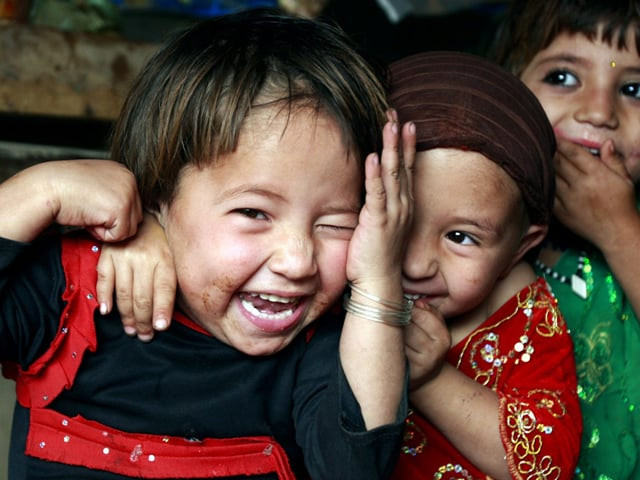On the 50th anniversary of the 1951 Convention relating to the Status of Refugees, the United Nations General Assembly adopted resolution 55/76 where it was decided that June 20 would be celebrated as World Refugee Day.
A refugee, as per Article 1 of the 1951 Convention, is defined as an individual who has a:
“well-founded fear of prosecution because of his or her race, religion, nationality, membership of a particular social group or political opinion; and is unable or unwilling to avail himself or herself of the protection of that country, or to return there, for fear of prosecution.”
Unfortunately, Pakistan is not one of the 147 states signatory to the 1951 Refugee Convention or the 1967 Protocol relating to the status of refugees. This comes as very surprising considering the fact that Pakistan dealt with a huge number of refugees from India post-partition in 1947, and was host to 3.6 million Afghans, as per UNHCR estimates, at the peak of the Soviet invasion of Afghanistan, followed by another influx post the 2001 Operation Enduring Freedom - Afghanistan by US forces. Of these, around 1.7 million, one of the largest populations of its kind, still remain in Pakistan. Additionally, according to UNHCR figures, there are around one million people still displaced due to the 2009 emergency in FATA and Khyber-Pakhtunkhwa.
The reason South Asian states did not sign the Refugee convention was because it was considered too ‘Euro-centric.’ However, according to the UNHCR, the 1967 Protocol removed these limitations and thus gave the convention universal coverage. Pakistan has been very generous with refugees, and signing this convention will hold several merits for us.
First, according to former Foreign Minister Abdul Sattar, signing the convention could lead Pakistan to a better position to defend its sovereignty by stopping unwanted movements on its border, because the convention ceases to apply to a person who, according to Article 1, section C of the Convention:
“voluntarily re-avails himself to the protection of the country of his nationality.”
This would apply to the Afghan nationals that continue to cross the border and come back. This could also help improve security and anti-terrorism efforts as illegal immigrants will be distinguished from refugees. Registration of refugees under regularised standard operating procedure could prevent misuse of asylum and naturalisation procedures, according to experts.
Second, Pakistan would also be in a better position to demand assistance and aid once it signs the convention, as in 2002, Pakistan closed its borders to Afghan refugees on the pretext of shortage of funds and assistance to protect and sustain them.
Third, the 1951 convention is in accordance with Islamic teachings practiced in Madina at the time of the Prophet Muhammad (pbuh) when people from Madina received immigrants from Makkah as refugees.
Fourth, signing the convention would make refugee management more effective and efficient as a complex web of government agencies such as SAFRON, CCAR, and NADRA manages the refugee population. Moreover, there would be no need for special agreements such as the Tripartite Agreement between the UNHCR, Government of Afghanistan, and Government of Pakistan.
According to the UNHCR:
“The Convention is both a status and rights-based instrument and is underpinned by a number of fundamental principles, most notably non-discrimination, non-penalization and non-refoulement.”
These principles are important for Pakistan to adopt in light of international human rights law, as well as refugee laws. According to a 2009 Human Rights Commission of Pakistan (HRCP) report “Afghan Refugees in Pakistan: Push Comes to Shove,” many Afghans have been forced to return to Afghanistan, despite a constantly deteriorating law and order situation there. Further, according to reports, Pakistani authorities allegedly offered Afghan refugees the option of residing either in camps near the unsafe border where food supply would be guaranteed, or in camps in Peshawar where they would be safe, but without a guaranteed supply of food.
Non-refoulement, enshrined in Article 33 of the convention, is a principle in international law that is concerned with the protection of refugees from being returned to places where their lives or freedoms could be threatened. Despite Pakistan not being bound by the 1951 Convention, the principle of non-refoulement is part of international customary law, and must be respected to safeguard innocent lives under threat of persecution.
[[http://www.youtube.com/watch?v=-8KyAbVZWcU]]
It is interesting to note here that due to Pakistan not being signatory to the 1951 Refugee Convention, the millions of displaced Afghans residing in camps and elsewhere in Pakistan from 1979 to the mid-90’s were given prima facie refugee status by the Government of Pakistan. However, from mid-90’s till the 2005 census, those living in camps with refugee ration cards were secure in their status as refugess whereas those who had moved outside of camps were subject to the Foreigners Act 1946, and from 2006 onwards, they were issued Proof of registration (PoR) cards by NADRA, and were no longer subject to the Foreigners Act 1946. Without the PoR card, however, they are considered illegal migrants and subject to the Foreigners Act 1946.
This is because no Pakistani legal instrument has defined laws for refugees. Only in March 2010 was a private member bill, the Foreigners (Amendment) Act 2010, submitted by Member National Assembly Shireen Arshad Khan, which included the term (d) asylum seeker and (e) refugee to Section 2 of the Act. The concerned National Assembly Standing Committee, however, is yet to release a report on the bill. It is important for the Parliament to consider this bill, and perhaps amend it if needed, so Pakistani law can have specific clauses concerning recognition and protection of refugee population within its territories. Police forces should also be trained accordingly considering the high incidence of harassment at the hands of security personnel reported by Afghan refugees.
Hence, on this day, it is important for us as Pakistanis as well as our government to realise the importance of respecting rights of refugees considering their plight, and continue to give them protection in line with international laws and humanitarian principles. This can also bring much-needed improvement in our international image.



COMMENTS
Comments are moderated and generally will be posted if they are on-topic and not abusive.
For more information, please see our Comments FAQ